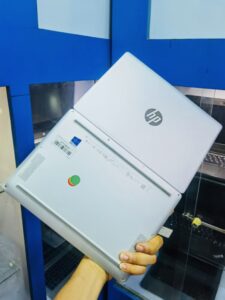HDD vs SSD Storage Type

Whenever you want to buy a laptop, you often hear the salesperson mention an array of specifications to you. One of the things you often hear is 256GB SSD or 500GB HDD. Although people know what is being said is the storage capacity of the product, a lot of people however, do not understand what the suffix HDD and SSD means. So what do they mean?
HDD and SSD are types of computer storage. HDD means Hard Disk Drive while SSD means Solid State Drive. What are their differences?
Design & Shock: HDD is the storage type that is made of moving mechanical parts. One can imagine the VCD or DVD disks of old that rotates cyclically while a movie plays. The HDD performs in similar fashion. SSD, however, is the newer storage type that functions differently. SSD is like the memory cards we used in our earlier android phones. It is made up of electrical parts like ICs. The implication of this design for both storage types is that because SSD has no moving parts, you will not lose your data when your laptop bag drops, or the laptop gets shaken as you use them, but this is not the same with HDD and its moving parts with which you stand the risk of losing your data when the storage shakes or moves vigorously from its place. That is to say, SSD is Shock-Resistant; HDD isn’t.

SPEED: SSD is faster; it boasts of about 35 to 100 microsecond access speed while HDD takes about 5000 to 10000 microseconds to access data. SSD is nearly hundred times faster than HDD.
Noise: Because SSD is not made of moving parts, it has the advantage of quiet operation. The HDD, however, with its moving parts like the spinning platters and moving heads, produces noises when functioning.
POWER: The SSD consumes less power due to its improved design but the HDD consumes more because of the parts that required to spin. Therefore with SSD laptops one can save power and enjoy lower energy bills.
HEAT: The HDD generates more heat while functioning due its mechanical moving parts. SSD generates less heat therefore ensuring durability and increasing the lifespan of the system. The more heat HDD generates poses higher risk of potential damage to the electronics.
SIZES: SSD is available in compact sizes while HDD is comparatively larger. This is why most thin laptops are SSD while the bulky laptops are made of HDD.
BEST TO STORE: SSD is best for storing operating systems, gaming apps, and frequently used files. HDD is best for storing extra data such as movies, photos, and documents.
COST: HDD is less expensive. SSD is expensive.


Pingback: MyBlog
Pingback: buy androxal generic androxal
Pingback: purchase enclomiphene generic side effect
Pingback: online order rifaximin new zealand buy online
Pingback: discount xifaxan no prescription overnight delivery
Pingback: purchase staxyn cheap sale
Pingback: cheap avodart where to purchase
Pingback: order dutasteride generic is it legal
Pingback: order flexeril cyclobenzaprine price on prescription
Pingback: buy cheap gabapentin purchase in australia
Pingback: buy fildena generic drug
Pingback: buying itraconazole online mastercard accepted
Pingback: cena kamagra v obchodě s drogami
Pingback: generique kamagra pharmacie au rabais nouveau brunswick